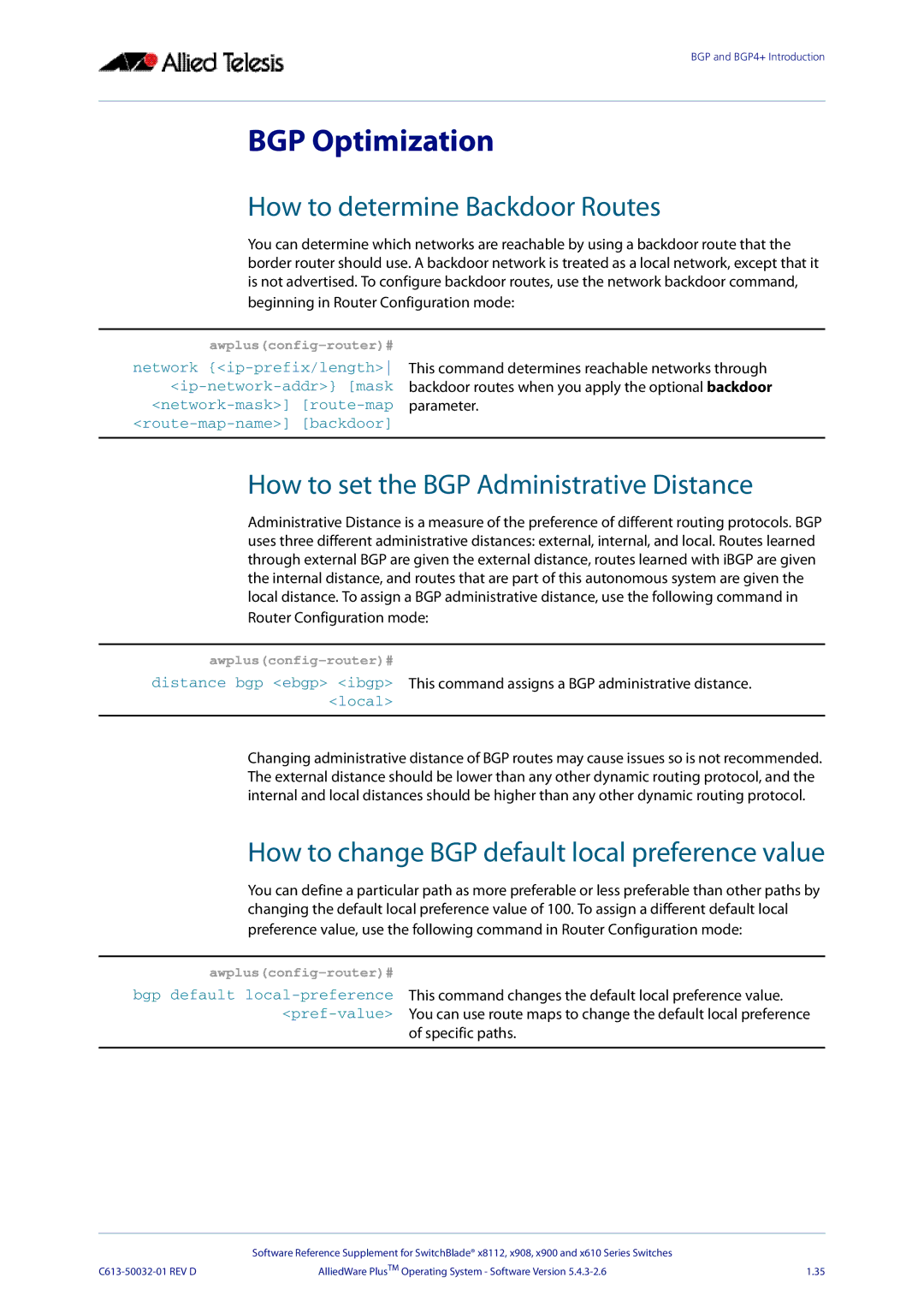
BGP and BGP4+ Introduction
BGP Optimization
How to determine Backdoor Routes
You can determine which networks are reachable by using a backdoor route that the border router should use. A backdoor network is treated as a local network, except that it is not advertised. To configure backdoor routes, use the network backdoor command, beginning in Router Configuration mode:
awplus(config-router)#
network
How to set the BGP Administrative Distance
Administrative Distance is a measure of the preference of different routing protocols. BGP uses three different administrative distances: external, internal, and local. Routes learned through external BGP are given the external distance, routes learned with iBGP are given the internal distance, and routes that are part of this autonomous system are given the local distance. To assign a BGP administrative distance, use the following command in Router Configuration mode:
awplus(config-router)#
distance bgp <ebgp> <ibgp> This command assigns a BGP administrative distance.
<local>
Changing administrative distance of BGP routes may cause issues so is not recommended. The external distance should be lower than any other dynamic routing protocol, and the internal and local distances should be higher than any other dynamic routing protocol.
How to change BGP default local preference value
You can define a particular path as more preferable or less preferable than other paths by changing the default local preference value of 100. To assign a different default local preference value, use the following command in Router Configuration mode:
awplus(config-router)#
bgp default
of specific paths.
| Software Reference Supplement for SwitchBlade® x8112, x908, x900 and x610 Series Switches |
|
AlliedWare PlusTM Operating System - Software Version | 1.35 |
